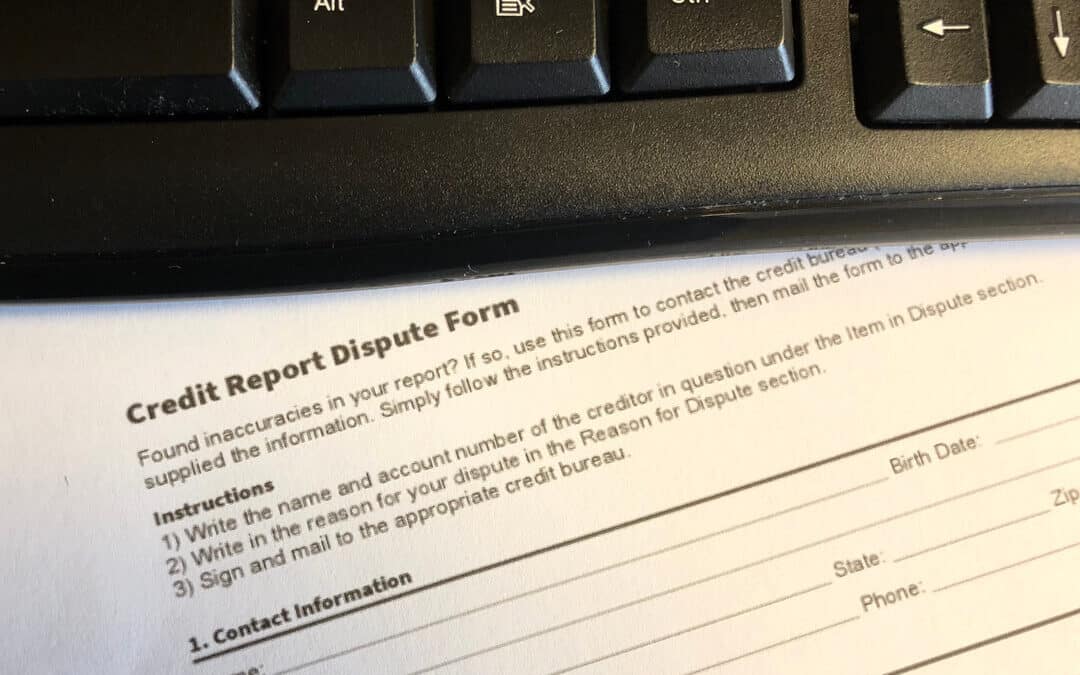A credit report is a statement, frequently reviewed when engaging in financial activity, which may use to determine an individual’s financial reliability. It can also be used as a tool to help understand your financial health. Information on your credit report can be used to determine whether you qualify for loans, can open a bank account, or even purchase a home. However, the information on your credit report is provided by your creditors. Your creditors don’t always report accurately. When you have errors on your credit report, the consequences can devastate both your short-term and long-term financial goals. This is especially true if you have completed personal bankruptcy and wish to benefit from the financial fresh start it provides.
However, there are ways to remedy these errors. You can dispute these errors and ask the agencies that maintain your credit report to fix them. In this blog post I will explain, in general, what a credit report is, how it could contain errors, and then detail the steps for disputing a credit report so that it may be corrected.
What is a Credit Report?
A credit report is a statement breaking down the personal financial activity that an individual has engaged in for the past 7 to 10 years. It contains a detailed month by month record of your payments for many of your creditor accounts. If you timely make all your payments, the report should reflect a good history of timely payment. If you have missed payments, the report should reflect the delinquency. The credit report also breaks down the types of credit accounts you have maintained. In addition to your repayment history, it will show your credit limits for each of these accounts. It will show how much of your available lines of credit you are currently utilizing. The report will include all types of financial accounts you’ve maintained, utilities, mortgages, car notes, credit cards, the credit report should paint a complete picture of your financial health.
Many creditors refer to credit reports when determining to determine your credit worthiness. They often use the contents of the report to decide what loan products they make available or what interest rates they are willing to offer. When the results of your report are inaccurate or incomplete, this can have detrimental consequences for both maintaining low-interest loans and getting financial products in general.
How are Credit Report Errors Created?
Your credit report may contain errors for many reasons, including:
- Your personal information was stolen (address, Social Security number, or credit card information, for example) and someone got credit in your name.
- A creditor made an error when reporting the information to the credit bureaus.
- The credit bureaus made an error when they reported your information to the creditors.
If you have completed a bankruptcy, you may find errors where the lender has not notified the credit bureaus that the liability on the account has been discharged through bankruptcy. It may show that the account is still open and even delinquent on payments.
How to Dispute Credit Report Errors?
The first step you should take, of course, is to review your credit report to see if there are any errors. Most people are unaware that their credit report contains errors until they find out they have been denied on a loan application. Federal law allows you to receive a credit report once every 12 months from each credit reporting agency (CRA) or credit bureau. The three major credit reporting agencies are Equifax, Experian, and TransUnion. You can request your free copy directly from the three credit bureaus or online through www.annualcreditreport.com.
Once you receive the credit reports, review each report carefully for any errors. Look to identify accounts that you are not familiar with. You can dispute specific errors or dispute all the errors in your reports. To dispute an error, write to the credit bureau(s) whose report contains the error asking them to remove the incorrect information. You must contact each credit bureau individually, even if they are showing the same credit error.
When writing your dispute letter, remember to include:
- Your name
- Your current address
- Your Social Security number
- Your account number
- A list of all the errors in the report
- Supporting documentation to help prove that the information being disputed is incorrect
If you cannot resolve an error through correspondence with the credit bureau, you may need to take further action, such as contacting your local consumer protection agency or filing a lawsuit.

